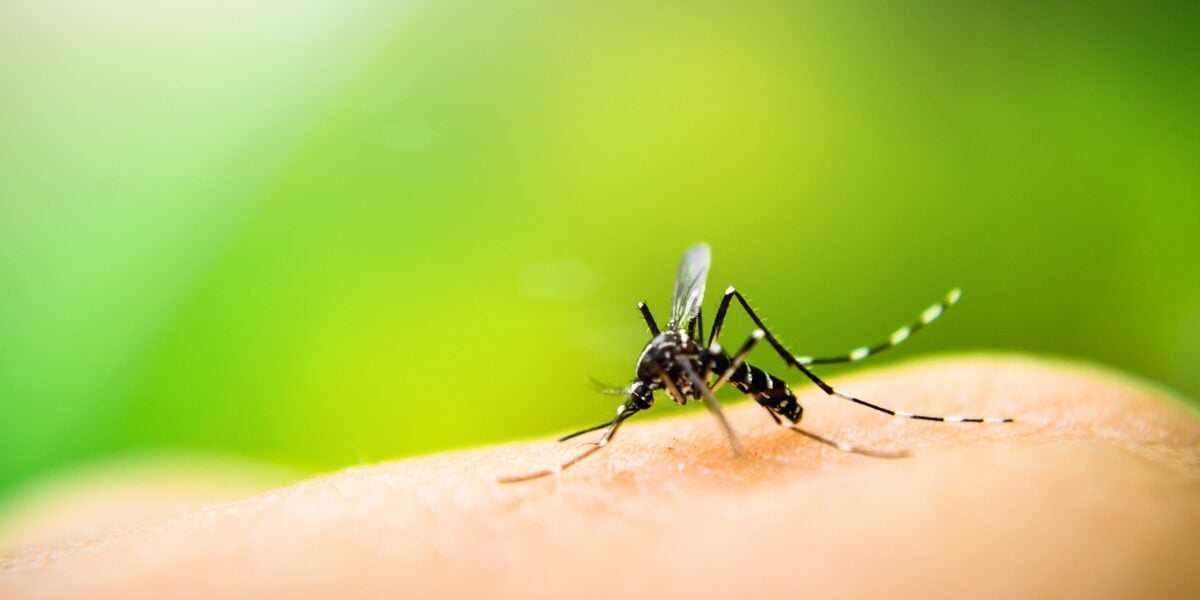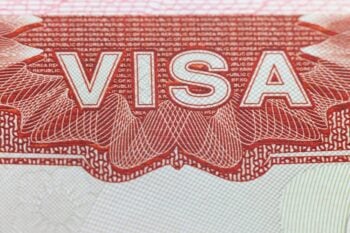
Learn About Mandatory and Recommended Travel Vaccines
 Traveling the world is exciting, but staying healthy while doing so is just as important. Knowing the vaccine requirements for your destination is essential. While some vaccines are mandatory to enter certain countries legally, others are strongly recommended to protect you from serious illnesses.
Traveling the world is exciting, but staying healthy while doing so is just as important. Knowing the vaccine requirements for your destination is essential. While some vaccines are mandatory to enter certain countries legally, others are strongly recommended to protect you from serious illnesses.
Since 1944, international travel has required immunizations to help prevent the spread of diseases and promote public health. These vaccines not only protect your health and help ensure your trip goes smoothly but also safeguard local populations. They also guard against diseases with long-term health consequences, such as polio and encephalitis.
That said, vaccine requirements can change quickly, so wherever you're headed, it's important to check the travel health protocols for your destination well in advance. To help you prepare, this article will guide you through finding the vaccine requirements and recommendations for your destination, as well as how to access the necessary vaccinations to stay safe and healthy while abroad.
Traveling the world is exciting, but staying healthy while doing so is just as important. Knowing the vaccine requirements for your destination is essential. While some vaccines are mandatory to enter certain countries legally, others are strongly recommended to protect you from serious illnesses.
Since 1944, international travel has required immunizations to help prevent the spread of diseases and promote public health. These vaccines not only protect your health and help ensure your trip goes smoothly but also safeguard local populations. They also guard against diseases with long-term health consequences, such as polio and encephalitis.
That said, vaccine requirements can change quickly, so wherever you're headed, it's important to check the travel health protocols for your destination well in advance. To help you prepare, this article will guide you through finding the vaccine requirements and recommendations for your destination, as well as how to access the necessary vaccinations to stay safe and healthy while abroad.
Why Vaccines Matter for Travelers
Vaccinations are vital for staying healthy while traveling abroad. They protect you and your family by preventing travel-related illnesses, such as yellow fever, dengue, and typhoid, which are more prevalent in certain regions. Vaccines also guard against diseases with severe long-term health consequences, like polio, hepatitis, and malaria.
Healthy Travels Start with the Right Coverage
Travel insurance includes support for illnesses and accidents during your trip so you can focus on the journey. Start by requesting a free quote to find your travel plan!
In addition to safeguarding your health, some countries require specific vaccinations for entry. Getting the necessary travel shots ensures you meet these entry requirements and helps make your trip safer and smoother.
Checking Travel Vaccine Requirements for Your Destination
Many destinations require proof of vaccination, and you can be denied entry without that proof. It's vital to check what travel shots you need well before your trip so you can schedule them in advance.
Some immunizations are mandatory, while others are recommended. To find out what's required for your trip, check any of the following resources:
- Center for Disease Control (CDC) travel health information
- Travel Health Pro (U.K., NaTHNaC)
- World Health Organization (WHO) vaccines page
Make sure to revisit these resources closer to your travel date, as requirements can change. Also, note that some vaccines may require multiple doses over several weeks, so it's essential to start early to ensure you're fully protected before departure.
Required vs. Recommended Travel Vaccines
Before traveling, it's essential to understand which vaccines are required and which are recommended for your destination to ensure both your safety and compliance with local health regulations.
Below is an overview of some of the key shots that may be required for travel to certain destinations:
Required Vaccines: Mandatory for Entry into Certain Countries
Certain diseases carry vaccine requirements for travelers. Before you travel, check whether your destination requires vaccinations for the following diseases:
- Yellow fever is a mosquito-borne disease endemic to parts of Africa and Central and South America. Over 60 countries have travel vaccine requirements for yellow fever. When you get immunized, be sure to obtain a vaccination certificate. Without it, many countries will refuse entry if you've traveled to a high-risk area. The vaccine costs around $170 US. The CDC provides an up-to-date list of countries with yellow fever vaccination requirements.
- Meningococcal meningitis vaccination is required for pilgrims traveling to Saudi Arabia for Hajj and Umrah, the holy visits to Mecca. Saudi Arabia provides its meningitis immunization requirements on its visitors' website. The CDC also recommends it for travel in much of sub-Saharan Africa.
- Polio has been reappearing in some parts of the world. A few countries, like Pakistan, require the vaccine for anyone entering or leaving the country, and several others require it for those entering from certain countries. The CDC suggests a vaccine for travel to regions affected by polio. The vaccine, called e-IPV or IPOL, costs between $16 and $44 without U.S. health insurance.

Recommended Travel Vaccines: Essential for Health Protection
While some vaccines are required for travel, others are highly recommended to safeguard your health during your trip:
- Hepatitis A immunizations are advised for most countries, particularly regions with less-developed sanitation practices. This includes many countries in Africa, Asia, and South America. Travelers to rural areas or places with inadequate sanitation infrastructure in Eastern Europe (e.g., Albania, Bulgaria) may also be advised to get vaccinated.
- Hepatitis B vaccines are recommended for travel to many destinations in Asia, the Pacific, Africa, South America, and the Caribbean. These vaccines typically require three shots over a six-month period, so plan to get them well in advance.
- Japanese encephalitis is a mosquito-borne disease that causes dangerous brain inflammation and has no cure. It is recommended for travelers visiting areas in Asia, India, the South Pacific, or Australia. The vaccine costs between $200 and $400 per dose in a two-dose series.
- A rabies vaccine is worthwhile if you'll be in close contact with wild animals or traveling to areas where animal exposure is likely. Wildlife volunteers and travelers who enjoy caving or spelunking may face an increased risk of rabies from animal bites or bat exposure in certain regions.

Protect yourself from malaria! While a malaria vaccine is under development and available for children in some countries, it is not yet effective enough for use in travel. Instead, travelers should rely on malaria medications and preventative tools, such as insect repellent, to protect against malaria in endemic regions.
Routine Immunizations: Don't Forget These Key Shots
Besides these destination-specific vaccines, it's also important to stay up to date on your routine immunizations. Both the World Health Organization (WHO) and the Centers for Disease Control (CDC) recommend checking your vaccination status and getting boosters for the following:
- Diphtheria-Tetanus-Pertussis (whooping cough)
- Influenza
- Measles-Mumps-Rubella (MMR)
- Tetanus
- Typhoid Fever
- Polio
Be sure to consult with a healthcare provider or travel clinic well before your trip to ensure you're fully protected with the right shots and meet the vaccine requirements for your destination.
COVID-19 Travel Vaccination Updates
While the worst period of the global pandemic has passed, COVID-19 remains prevalent and can still pose serious risks.
Traveling in enclosed spaces like planes and trains and being in crowded environments increases the likelihood of contracting respiratory illnesses.
For this reason, the COVID-19 vaccine is strongly recommended to help reduce the risk of severe illness and, in the worst case, death.
Countries that Don't Require COVID Vaccinations for Travel
While most countries that previously required COVID-19 vaccinations for entry have lifted this requirement, it's still important to check the specific regulations for your destination. The CDC's website offers up-to-date information on vaccination requirements, including for COVID-19.

Follow event-specific COVID-19 rules. Some private events, such as conferences or gatherings, may still require proof of COVID-19 vaccination or testing to protect attendees. If you're traveling internationally for such an event, review the event's specific requirements, as they may differ from the broader destination's rules.
How to Get Travel Vaccinations Before Your Trip
Doctors generally recommend getting most travel vaccinations four to six weeks before your trip. This ensures the vaccines have enough time to take full effect and gives you time to receive proof of immunization if required for travel.
Start by checking with your primary care provider or visiting your local pharmacy. Many areas also offer travel clinics, and the International Society of Travel Medicine (ISTM) provides a helpful Global Travel Clinic Directory to help you find one near you.
Keep in mind that your domestic health insurance may not always cover travel vaccinations. Be sure to check with your insurance provider and family doctor to confirm coverage and understand potential costs. For up-to-date vaccine prices without insurance, consult the Current CDC Vaccine Price List.
Read More: Local Domestic Insurance and International Travel
Keeping Proof of Vaccination for International Travel
The International Certificate of Vaccine or Prophylaxis (ICVP) – commonly known as the "Yellow Card" – is an official document that records which travel immunizations you've received and when.
It serves as proof of vaccination when entering certain countries and is especially important for meeting yellow fever requirements. Notably, some countries will not allow entry without this certificate if you've recently traveled from a yellow fever-endemic region.

The World Health Organization (WHO) developed the Global Digital Health Certification Network to support international travel and public health. This system helps track vaccinations across borders and verify immunization records, depending on your country of origin and destination.
It also aims to strengthen global readiness for both current and future health threats. Notably, some countries have begun accepting compatible digital records instead of paper ones.
If you're using a digital method to show proof of vaccination, it's wise to carry a paper copy as a backup. Keep it in a secure place alongside your passport and other travel documents.
If you're traveling with children, ensure their vaccinations are current. You'll need to present their immunization records, along with their passports and tickets, at borders or transit checkpoints.
Some airlines and travel providers may ask for proof of vaccination before boarding, especially for destinations with specific entry requirements. Double-check any airline or tour company guidelines in advance to avoid last-minute surprises.
Read More: Traveling Internationally with Prescription Medication
How Much Do Travel Vaccines Cost?
The cost of travel vaccinations can vary widely based on several factors, including the specific vaccine, your location, and whether or not your health insurance covers the vaccine.
Many health insurance plans do not cover travel-specific vaccines, so it's essential to check with your provider about coverage and costs before getting vaccinated.
On average, the price of a travel shot can range from around $30 to over $400 per dose. However, some vaccines require multiple doses, which can increase the total cost.
Here are some examples of typical travel vaccine costs without insurance:
- Hepatitis A vaccine cost without insurance: Typically ranges from $50 to $150 per dose, with a two-dose series costing between $100 and $300.
- Hepatitis B vaccine cost without insurance: Typically ranges from $40 to $110 per dose, with the full three-dose series costing between $120 and $330.
- Japanese encephalitis vaccine cost without insurance: The two-dose series usually costs between $450 and $800.
- Meningococcal Meningitis vaccine cost without insurance: Typically ranges from $100 to $200 per dose.
- Polio vaccine cost without insurance: A booster dose can cost anywhere from $50 to $200 or more, depending on the provider and location.
- Rabies vaccine cost without insurance: The full series (3 doses) can range from $250 to $500 per dose.
- Tetanus shot cost without insurance: Typically costs between $25 and $60 per dose.
- Typhoid vaccine cost without insurance: The cost can range from $40 to $100, depending on whether you receive the injectable or oral version.
- Yellow fever vaccine cost without insurance: The single required dose typically costs between $150 and $350.
Note that these prices are approximate and can vary depending on where you get the vaccine (e.g., travel clinics, local pharmacies) and whether or not you have insurance coverage. Always check with your healthcare provider or local travel clinic for the most accurate and up-to-date pricing information.
Does Insurance Cover Travel Vaccines?
According to the CDC, many U.S. health plans do not cover the cost of travel vaccinations, especially for shots like yellow fever and meningococcal meningitis.
However, hepatitis B vaccination is typically covered by insurance, as it is considered a routine vaccine. This vaccine requires a three-dose series, and without insurance, the cost can be as high as $90 per dose.
Travel insurance plans generally don't cover the cost of travel vaccinations. These policies are designed to protect against illness or injury while traveling, not preventative care before the trip.
That said, it's still important to purchase travel insurance that includes medical coverage in case of unexpected health issues or vaccination costs while abroad.
While travel health clinics may charge a premium for quick immunizations, you can often find more affordable options by shopping around. Your family doctor might be able to offer travel immunizations at a lower cost or even for free through public health programs.
Top Travel Health Tips
When planning an international trip, it’s essential to be aware of potential health risks and take the necessary precautions. Proper preparation can help ensure a safe and enjoyable trip.
Take Measures to Prevent Malaria
Malaria is a disease that is widespread in certain regions abroad, yet it lacks a widely available or effective vaccine. If you're traveling to areas such as sub-Saharan Africa, Central and South America, or Southeast Asia, it's essential to take preventative measures, including:
- Medications to Prevent Malaria: These are often prescribed to travelers going to malaria-endemic regions. The medicines should be taken before, during, and after your trip. Common options include atovaquone-proguanil (Malarone), doxycycline, and chloroquine. Always follow your doctor's instructions and complete the prescribed course to ensure effectiveness.
- Mosquito Bed Nets for Sleeping: Sleeping under an insecticide-treated mosquito bed net is one of the most effective ways to protect yourself from mosquito bites, particularly in areas with a high risk of malaria. Be sure to secure the net properly and check for any holes. While untreated nets are available, insecticide-treated nets provide added protection against mosquitoes and other insects.
- Bug Repellent to Prevent Bites: Use insect repellent with at least 20% DEET, picaridin, or oil of lemon eucalyptus on exposed skin and clothing. Reapply as needed, especially if you're sweating or swimming. Wearing long sleeves, pants, and socks can further minimize exposed skin. Remember to reapply the repellent before bed, especially if you aren't using a mosquito net.

If you do contract malaria, it is treatable, but it remains a serious illness. Treatment is usually covered by most travel insurance plans, but make sure to check your policy before purchasing.
Consider Travel Insurance
Travel insurance is essential to protect yourself against unexpected health issues while abroad. It can cover treatment for malaria and other medical emergencies.
Find the Best Travel Plan for Your Journey!
Explore our side-by-side comparison of the top short-term travel medical plans and choose the coverage that best suits your needs.
Always review your travel insurance options to find the best plan for your needs and confirm whether your policy covers vaccinations and other preventative measures.
Check Food and Water Safety
When traveling to countries where malaria, typhoid, or yellow fever might be a concern, it's important to check food and water safety.
In many places, drinking tap water (or even ice cubes in restaurants) might be unsafe, and you should avoid raw fruits or undercooked meat or fish. Do your research to know what precautions to take before you go.
Stay Updated on Travel Advisories
As you prepare for your trip, keep an eye on travel advisories for your destination. These are available for most countries, and systems in the U.S., Canada, the U.K., Europe, Australia, and other regions provide up-to-date alerts.
Many of these systems offer smartphone notifications so you can stay informed about any last-minute changes.
Skip Getting Sick – Protect Yourself Abroad
Routine vaccinations are essential even when you're not traveling, but an international trip is an excellent opportunity to ensure you're up-to-date.
For additional immunizations, it's crucial to check the specific requirements for your destination and any recommended vaccines.
To confirm vaccine requirements for your destination, consult official visa or immigration authorities. Your home country, the countries you've visited, and any countries you're transiting through all influence the vaccines you'll need.
Since immunization requirements can change frequently, it's important to monitor the following resources as you prepare for your adventure:
- United States Centers for Disease Control – Travelers' Health: Destinations
- United Kingdom National Health Service – Fit for Travel
- European Union – Travel and COVID: Rules and Restrictions
Finally, be sure to shop around for the best travel insurance to ensure you're fully covered for any health-related issues during your trip. Bon voyage!
Healthy Travels Start with the Right Coverage
Travel insurance includes support for illnesses and accidents during your trip so you can focus on the journey. Start by requesting a free quote to find your travel plan!
Read More
Author: Kamela Hutzley is a Senior Editor at International Citizens Insurance. She is a native New Jerseyite who recently emigrated to Halifax, Nova Scotia. In late 2022, she spent a month each in Ottawa, Montreal, and Quebec City, before deciding on Atlantic Canada for the long haul. She’s traveled to Hawai’i, Jamaica, France, Spain, the UK, Ireland, Greece, Switzerland, Germany and the Netherlands. Kamela writes about International Life Insurance, Travel insurance, and Health topics as well as advice for expats and travelers.



